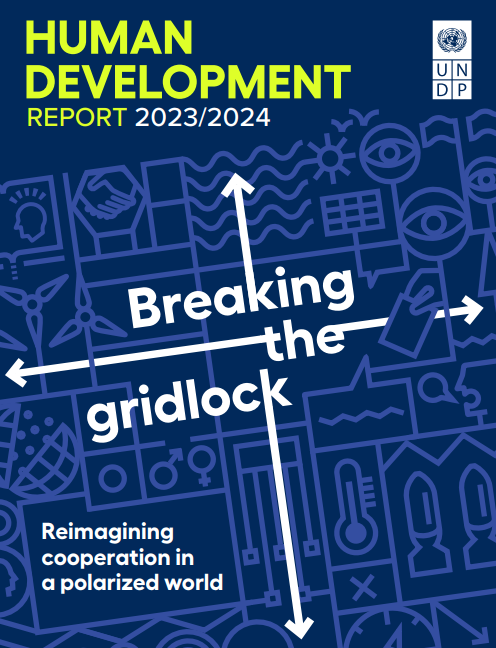Human Development Report
2023/24

The 2023/24 Human Development Report by the United Nations Development Programme (UNDP) highlights that uneven development progress is intensifying global inequality and political polarisation. Despite a partial recovery in the global Human Development Index (HDI) post-2020/21 declines, progress remains uneven, with wealthy countries reaching record highs while many of the poorest nations lag behind their pre-crisis levels. The report underscores the concentration of global economic power, with a significant portion of global trade and market capitalisation dominated by a few countries and companies, emphasising the urgent need for collective action to address these disparities and break the resulting gridlock.
This report also highlights that millions of displaced people, including children, could live dignified lives if countries could find mutually agreeable solutions, despite rising hostility towards refugees, especially in high-income countries. Most refugees are hosted in low- and middle-income nations, where humanitarian aid needs are soaring, with numbers expected to reach 300 million in 2024. Concurrently, funding for aid is not keeping pace, exacerbating food insecurity and disease risks due to conflicts and climate-induced droughts. Climate change, driven by greenhouse gas emissions, highlights a temporal and geographic decoupling between emitters and those suffering its effects. High HDI countries, which emit more CO2, will experience fewer extreme temperature days, while stringent environmental regulations in some countries lead to carbon offshoring to regions with laxer standards, undermining global emission reduction efforts.
Abstract based directly on original source.


Comments